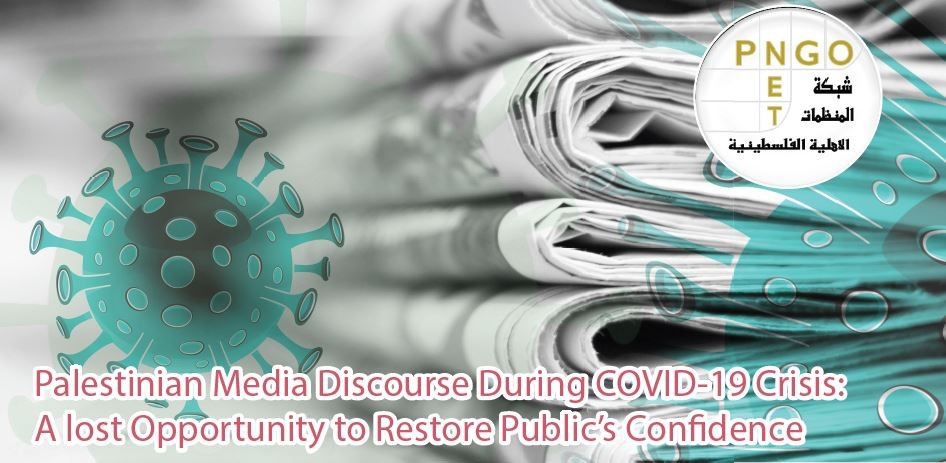The Palestinian NGOs Network (PNGO) issued a fact sheet on “Palestinian media discourse during the COVID 19 crisis...an opportunity to restore public confidence that was not seized”. This paper reviews the media discourse nature in a concise manner, which was used locally in dealing with the Corona pandemic. It also discusses its impact on the general public, according to preliminary estimates and close follow-up of different sectors and mechanisms alongside analyzing data and press summaries, and some of the published media materials.
The paper, prepared by the journalist Hazem Balousha, came within the project “Palestinian Civil Society Organisations Perspectives to Face Socio-Political Challenges”, which was implemented in partnership with the Friedrich-Ebert-Stiftung Foundation. This paper came to stress the need for the Palestinian media to not take news and official statements for granted.
Furthermore, the paper discussed the official speech, which was divided into two parts. The first is to promote the activities of official institutions with emotional speeches and in the context of public relations, and the second relates to the awareness-raising method, which was mainly dependent on international and national institutions.
The paper mentioned that the suffocating financial crisis before the pandemic clearly reflected on NGOs' performance during the pandemic and its contribution to limiting the spread and awareness. In most cases, NGOs were limited to keeping their employees at home to work remotely, while some institutions were forced to stop employees from working completely, as a result of the funding halt.
Moreover, the paper emphasized that the opportunity was given to the media during the pandemic to restore public confidence, due to the crowding of fabricated news on social media, and the official source of information was the traditional media. However, the domination of political disagreement and the absence of a unified stand limited the ability of the media to deal with the issue professionally. The shortage of funding and financial added insult to injury, as well.
In the same context, the paper focused on the failure of official agencies to rely on transparency, and the public's thirst for information gave social platforms space to influence public behavior. Some official and civil society institutions tried to refute some of the false information, but their impact was much greater to be rebutted.
Finally, the paper recommended the necessity to unify the Palestinian media discourse on the governmental and civil society levels, by agreeing on one information base. The paper also stressed the importance of pressuring government agencies to adopt transparency in disseminating information rather than adopting a policy that is appropriate to their interests only.
Download the Paper as PDF from here: Palestinian media discourse during COVID-19 crisis

